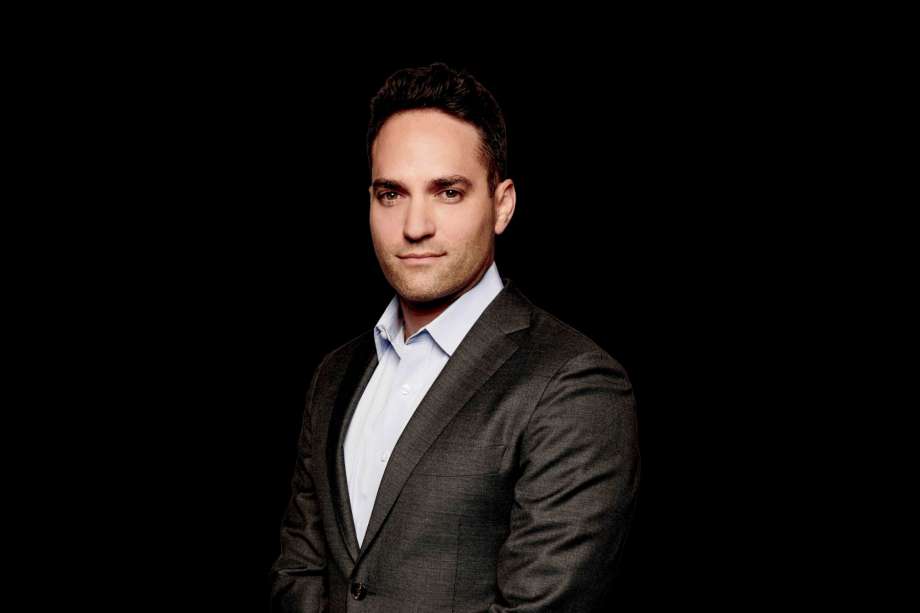How MedMen is making marijuana mainstream

Adam Bierman could be the poster boy of the modern canna-business executive. Clean-cut, young, driven, smooth as a vape hit -- about as removed from the bong-bogarting stoner as you can get. He’s also killing it.
As cofounder and CEO of marijuana giant MedMen, he has grown the company from a few dinky L.A. dispensaries to the largest cannabis business in the U.S. -- made possible by its acquisition of PharmaCann, and a rapid expansion that includes 66 dispensaries and 13 cultivation centers across 12 states. But Bierman says this is just the beginning.
You’ve been growing rapidly for nine years. What’s the secret weapon?
We had the vision that we could build this marijuana company through brand, through accessibility by way of destigmatizing cannabis and knowing it’s something people could benefit from. But in order to build the business, we had to simultaneously build the industry. When we started, there was no such thing as a successful marijuana business -- one that was legal, at least. So to build this industry while simultaneously building this business, you have to mainstream marijuana.
What do you mean by “mainstream”?
Think about the Chardonnay moms. What is it gonna take to get them to replace Chardonnay at brunch with a couple hits of a vape pen? There are plenty of what we call legacy core users, who don’t need attractive packaging or real straightforward descriptions. But that’s not who we’re catering to. We’re catering to the future.
Your dispensaries have been compared to Apple stores -- minimalist, open, attractive. Was that the idea?
The stores are really the vision of my cofounder, Andrew Modlin. But it wasn’t like Andrew envisioned an entirely new retail experience. He envisioned what a cannabis retail experience could look like if you pretended it wasn’t cannabis -- if you forgot for a second that it had somehow to be different because it was cannabis, or that you needed to apply some type of different thought process.
Which mainstream companies have been your inspiration?
We looked at big-box retail. We looked at Starbucks. We looked at all these different industries. Look at a casino like Harrah’s: You talk about stigma. Nobody wanted to touch casinos. And they said, “Well, let’s pretend it’s not casinos and gaming, and let’s hire a bunch of MIT guys and girls to come in and really analyze the data. What do our consumers want? What is important to them? What motivates them?” And they created a loyalty program that changed not only gaming; it kind of changed the world.
What advice do you give new entrants to the business?
Don’t worry about what you think you should be doing. It’s really just about asking the question Why not? And if you can’t get a great answer, then go do it.
Marijuana is still illegal federally. Banks don’t want to touch your money, and the attorney general is certainly not a fan. Do you ever worry this bubble may burst?
You’ve got nearly 90 percent of the United States in favor of medical marijuana. You’ve got the majority of the country in favor of recreational marijuana. You have Canada legalizing marijuana recreationally at the federal level. Marijuana will be fully legal, whether it’s in two years or three years or five years. It’s really a question of how mainstream does it get and how quickly.
If you could time travel, what would you tell your 21-year-old self?
The biggest thing I’ve learned is how to lose. Learning how to lose is such an amazing skill when you are an entrepreneur. How do you embrace loss? How do you embrace failure? Not that if you get punched in the face, you should get right back up. Or turning a no into a yes. That was me, and that’s not the answer. I think for those seeking real, true sustainable success, you’ve got to know how to lose. For example, how do you compliment the other side? Because when you lose, that means there’s another side that’s winning. And then how do you go back and reflect on that? You ask yourself, What is there to learn from my losing, and how can I grow from that? Being OK with losing and learning how to, that would be something I would tell my 21-year-old self to go figure out faster.
420 Intel is Your Source for Marijuana News
420 Intel Canada is your leading news source for the Canadian cannabis industry. Get the latest updates on Canadian cannabis stocks and developments on how Canada continues to be a major player in the worldwide recreational and medical cannabis industry.
420 Intel Canada is the Canadian Industry news outlet that will keep you updated on how these Canadian developments in recreational and medical marijuana will impact the country and the world. Our commitment is to bring you the most important cannabis news stories from across Canada every day of the week.
Marijuana industry news is a constant endeavor with new developments each day. For marijuana news across the True North, 420 Intel Canada promises to bring you quality, Canadian, cannabis industry news.
You can get 420 Intel news delivered directly to your inbox by signing up for our daily marijuana news, ensuring you’re always kept up to date on the ever-changing cannabis industry. To stay even better informed about marijuana legalization news follow us on Twitter, Facebook and LinkedIn.




